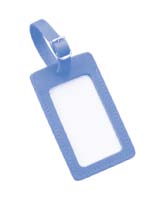New Luggage Limits Slam Traveling DiversContents of this Issue: How to Go Diving with Nondiving Kids New Luggage Limits Slam Traveling Divers Women Divers and Their Menstrual Cycles Unlucky Fiji Divers Poisoned by Dinner Dive Stores, the Internet and the Industry, Part IV Editorial Office: Ben Davison Publisher and Editor Undercurrent 3020 Bridgeway, Suite 102 Sausalito, CA 94965 from the August, 2006 issue of Undercurrent
Pack light, fellow divers, because the airlines are cutting their luggage limits, and if you’re flying coach, you’re going to pay. Exceed the limits and you will be shipping your gear separately. And, that 60 lb. carryon is also a thing of the past. International allowances for size and weight will vary by destination, carrier, and — in some cases — by class. For example, Singapore Airlines will allow two checked pieces weighing 70 lb. each, but frequent flyers and first- and business-class passengers can check more. TACA limits you to 100 lbs. total, with a maximum of 70 lbs. for one bag. Carry-ons are also limited by weight (about 45 pounds in most cases) as well as size. On domestic flights, Delta will sock you $25 each way for a bag weighing 51–70 lbs, while United, on domestic and Caribbean flights, makes it $50. It’s $100 each way if a bag weighs 71–100 lb. and major airlines won’t accept a bag weighing more. American Airlines spokesman Tim Wagner warned Undercurrent that divers who can’t get a piece of luggage below 100 lbs. “won’t be taking that bag with them.” More restrictions are coming from nearly every carrier. Do your homework on their Web sites, by phone or with your travel agent. Before you leave, weigh your bags on your bathroom scale. Go for soft-sided luggage. Buy books at your destination. Rent a BC. Forget that hair dryer. Live in one T-shirt, shorts and flip-flops. Ask a buddy to tote some of your load. Get creative. Or fly business class. |

I want to get all the stories! Tell me how I can become an Undercurrent Online Member and get online access to all the articles of Undercurrent as well as thousands of first hand reports on dive operations world-wide
| Home | Online Members Area | My Account |
Login
|
Join
|
| Travel Index |
Dive Resort & Liveaboard Reviews
|
Featured Reports
|
Recent
Issues
|
Back Issues
|
|
Dive Gear
Index
|
Health/Safety Index
|
Environment & Misc.
Index
|
Seasonal Planner
|
Blogs
|
Free Articles
|
Book Picks
|
News
|
|
Special Offers
|
RSS
|
FAQ
|
About Us
|
Contact Us
|
Links
|
3020 Bridgeway, Ste 102, Sausalito, Ca 94965
All rights reserved.

 Continental’s weight allowance starting
September will be 70 lb./ checked bag, either
domestic or international. They’ll collect a $25
fee for checked bags 51–70 lbs. And they’ll
accept no bag weighing more than 70 lbs.,
even if it’s carrying your Light & Motion
housing. That’s right, no exception for sports
equipment. Items weighing more than 70 lbs. must be
sent in advance via a known shipper or freight forwarder.
These arrangements can’t be made at the gate when
you’re told your bag’s over the limit.
Continental’s weight allowance starting
September will be 70 lb./ checked bag, either
domestic or international. They’ll collect a $25
fee for checked bags 51–70 lbs. And they’ll
accept no bag weighing more than 70 lbs.,
even if it’s carrying your Light & Motion
housing. That’s right, no exception for sports
equipment. Items weighing more than 70 lbs. must be
sent in advance via a known shipper or freight forwarder.
These arrangements can’t be made at the gate when
you’re told your bag’s over the limit. 